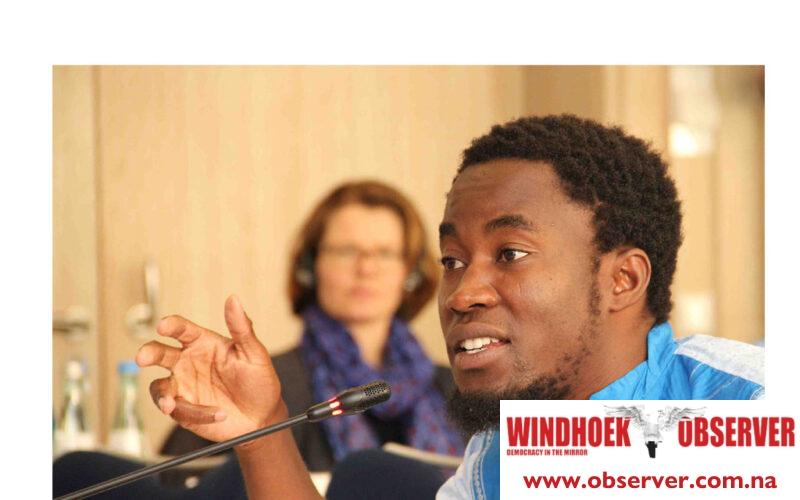Niël Terblanché
Job Amupanda stepped back into his activist shoes and started sowing fear about a new agreement between Namibia and the European Union.
In a video clip released on his social media platforms, he criticised the Namibian Government for allegedly selling the country to the Europeans down the road.
In his video, Amupanda referred to the recent visit of President Hage Geingob and his delegation to Brussels where Namibia affirmed its commitment to fostering a transparent partnership with the European Union (EU) in the transition to cleaner energy sources, with a significant emphasis on green hydrogen and critical raw materials.
The declaration was made during Geingob’s address at the EU-Namibia Green Hydrogen and Critical Raw Materials Business Forum under the theme, “Mobilizing Quality Investment and Value Addition for Green Growth in the EU-Namibia Partnership in Brussels, Belgium this week.
After concluding the crucial visit to the EU the President said that collaboration with the EU is aligned with Namibia’s National Development Plans, including Vision 2030.
“Our National Industrial Policy, Growth at Home Strategy, the SADC Protocol on Industry and the Mineral Beneficiation Strategy for Namibia. Namibia is committed to a partnership with business that is anchored in the rule of law and our practice of effective governance, buttressed by robust processes, systems and institutions,” Geingob said at the conclusion of the European visit.
Amupanda states that the agreement that still needs to be signed by both parties in the second week of November this year has secret clauses that will ultimately damage Namibia’s sovereignty and the freedom of the people.
He said the agreement and certain elements thereof are secret, but a short search on the internet quickly produced the entire document of more than 400 pages.
The only clause in the agreement with which Namibians might not agree is that Namibia must amend its laws and regulations with regard to the rights of the LGBTQ community.
The recent same-sex marriage debacle and the subsequent amendment of definitions of what constitutes a spouse in Namibia as described in the Namibian Constitution have reference.
According to Amupanda, the Namibian Government did not read the document and neither have the authorities consulted anybody about the agreement that will see new regulations being introduced on the EU’s insistence.
He said Namibian immigration regulations, safety and security will be compromised if the government signs the deal.
“Why do you want to sell our country like that? The agreement must be studied and there must be wide consultation with the people of the country before anything is signed,” he said
Namibia is part of the African, Caribbean, and Pacific (ACP) countries and successive ACP-EU partnership agreements signed over the years since the first Lomé Convention (1975).
Any person can access the document because it’s not an agreement with only Namibia but with more than 70 nations all over the globe.
Because of the ACP-EU agreement, Namibia is privy to an array of trade incentives when exporting to the European countries.
Namibia has signed many agreements with the European Union on trade and other areas.
To fall in line with the terms of the ACP EU agreements, the Namibia Revenue Agency (NamRA) is aggressive in stopping the trade of counterfeit goods.
Namibians entrusted the government to be part of the ACP agreements.
Critics of Amupanda also took to social media and said that he was late to the party. He should first become a leader.
“I think he should mind his own business or get himself voted into power first before attacking the government,” one of the detractors said in a comment on social media.
One of the detractors said that the agreement contains pro-LGBTQ clauses.
“But who cares? These people already have rights in Namibia. There’s never been a case of a person arrested for being gay so that’s not a problem. I actually think this agreement promotes good governance and forces governments to deal with corruption,” the critic said.
Another commented that the image of weakness is being exploited by Amupanda and holds no water as far as Namibia’s sovereignty is concerned.
The overarching argument by all commenters was that multilateral agreements such as the one referred to by Amupanda, take time and a lot of negotiations to develop.




